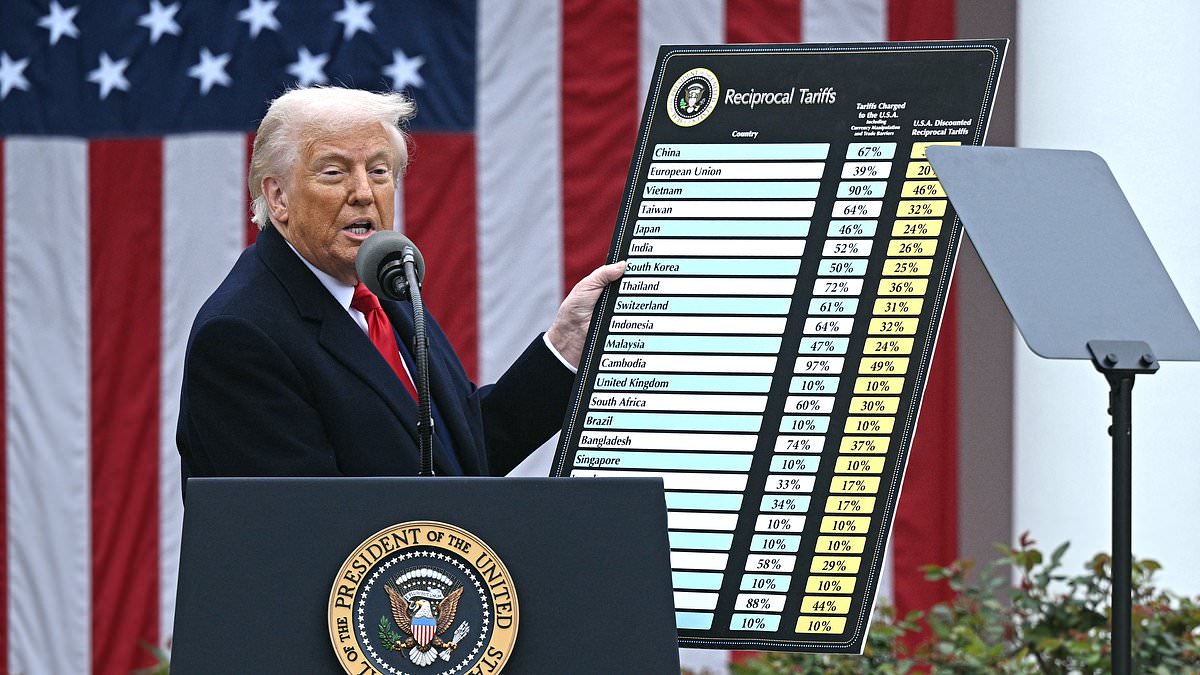US president Donald Trump last night announced a 10% tariff on almost all imported British goods, amid a massive wave of tariffs on countries across the world.
Britain appeared to come out the least unscathed in the Republican’s so-called Liberation Day announcements. Many nations saw tariffs of up to 49% slapped on them.
But experts have said it will still be a bumpy road ahead for Brits, as the world comes to terms with the impact of the Liberation Day tariffs.
Clarissa Hahn, an economist at Oxford Economics, told the BBC that while the initial wave of price rises will hit American consumers first, UK citizens may later face similar increases.
This would be due to the potential fluctuation of the pound, and exchange rates with other currencies, which were volatile in the wake of Trump’s announcements.
While this does mean that prices could go up or down, either way Britons will feel it in their bank accounts as price differences get passed down to consumers from businesses who have to pay the initial levy.
If prices rise, Ahmet Ihsan Kaya, principal economist at the National Institute of Economic and Social Research, told the broadcaster that this may also ‘prompt workers to demand higher wages.’
She added that if the UK decided to get into a trade war with the US in response to the tariffs, consumer prices would also rise.
So far, Sir Keir Starmer’s government has vowed to keep level-headed in response to the taxes.
Business secretary Jonathan Reynolds said following the announcement of the tariffs: ‘Nobody wants a trade war and our intention remains to secure a deal. But nothing is off the table and the government will do everything necessary to defend the UK’s national interest.’
But beyond the issue of consumer prices, Brits’ jobs may be affected, experts warned.
The UK currently exports around £60billion worth of goods to the US.
Almost all of these goods will now be taxed 10% to send them to the US, making it more expensive.
Within this £60billion, British cars make up just over £6billion of the exports. Trump last night announced a 25% tariff on all imported cars, again making it more expensive, and less attractive, to buy UK-made motors.
The Institute for Public Policy Research think tank said that the 25% tariff puts 25,000 British jobs at risk, as one-in-eight cars made in the UK is sent to America.
It’s not just automotive jobs that are at risk – pharmaceutical jobs may also be at risk, the think tank said.
British pharma firms AstraZeneca and GSK make around 40% and 50% of their sales to the US, respectively.
While they both have manufacturing plants in the US, they also rely on the import of raw ingredients from the UK and the EU, which has been hit with a 20% levy.
All of these are likely to affect interest rates for Britons, experts said.
Used to determine how much ordinary people have to pay to borrow money for loans on houses, cards and credit cards, high-interest rates can be a blessing for those with savings and a curse for those in need of borrowing.
Currently at 4.5%, economists have said they are expecting two more cuts of rated by the end of the year.
But last month, the Bank of England said it would not cut rates because of ‘intensified’ economic uncertainty caused by Donald Trump’s upturning of the economic order.
And with the tariffs causing massive uncertainty in the financial markets within hours of their announcement, rates could stay at 4.5% or even go up.
Andrew Bailey, the Bank of England governor, earlier said it was the institution’s job ‘to make sure that inflation stays low and stable’ and that would be ‘looking very closely’ at the impact of tariffs.
